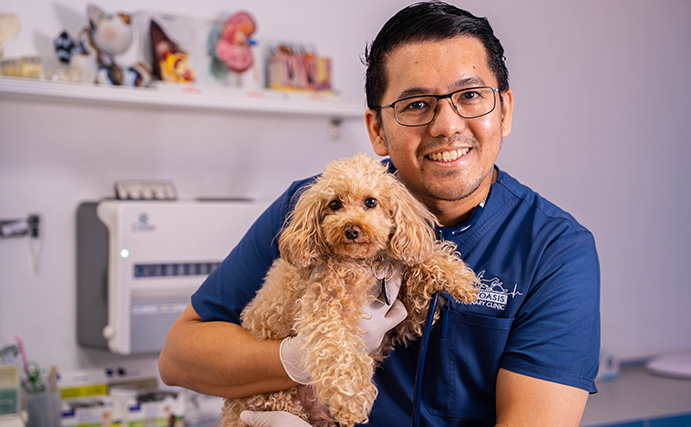Vaccinations
Vaccines are health products that trigger protective immune responses in pets and prepare them to fight future infections from disease-causing agents. Vaccines can lessen the severity of future diseases and certain vaccines can prevent infection altogether. Today, a variety of vaccines are available for use by veterinarians.
Which vaccines should pets receive?
When designing a vaccination program, veterinarians consider the pet’s lifestyle, related disease risks, and the characteristics of available vaccines. “Core vaccines” (e.g., rabies, feline panleukopenia, feline viral rhinotracheitis, feline calicivirus infection, canine distemper, canine parvovirus infection, and canine hepatitis) are recommended for most pets. Additional “non-core vaccines” (e.g., feline leukemia, canine kennel cough and other vaccines) may be appropriate based on the pet’s particular needs.

FAQ’s
Frequently Asked Questions
Yes! Pets should be vaccinated to protect them from many highly contagious and deadly diseases. Experts agree that widespread use of vaccines within the last century has prevented death and disease in millions of animals.
Even though some formerly common diseases have now become uncommon, vaccination is still highly recommended because these serious disease agents continue to be present in the environment.
Veterinarians have traditionally vaccinated annually; however, they are now learning that some vaccines induce immunity that lasts less than one year, whereas others may induce immunity that lasts well beyond one year.
It’s common for pets to experience some mild side effects after receiving a vaccine. You should talk with your veterinarian about what to expect after vaccination, and be sure to inform him or her if your pet has had prior reactions to any vaccine or medication. More serious, but less common side effects, such as allergic reactions, can be life-threatening and are medical emergencies.
Seek veterinary care immediately if any of these signs develop:
• Persistent vomiting or diarrhea
• Itchy skin that may seem bumpy (“hives”)
• Swelling of the muzzle and around the face, neck, or eyes
• Severe coughing or difficulty breathing
• Collapse



